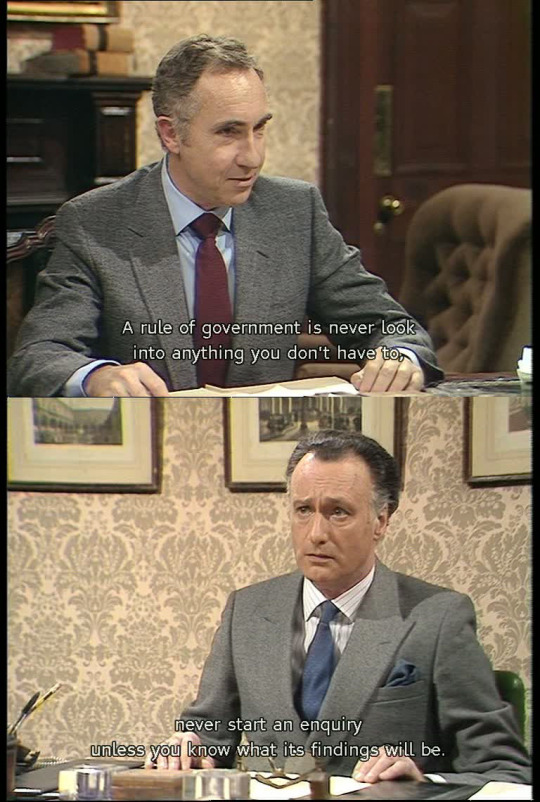Alliterative Absurdist Anarchist(he/him) '80s kid, Sagittarius ♐Twitter
Last active 60 minutes ago
Don't wanna be here? Send us removal request.
Text
did u guys hear abt that intern fired from that law firm bc she bit like 10 people. im kinda obsessed with her god i wish there was footage
45K notes
·
View notes
Text
Literally every neurodivergent person when somebody mentions their interest.
8K notes
·
View notes
Text

TALKING 'BOUT MY BABY, SHE'S SOME KIND OF WONDERFUL.
1K notes
·
View notes
Photo
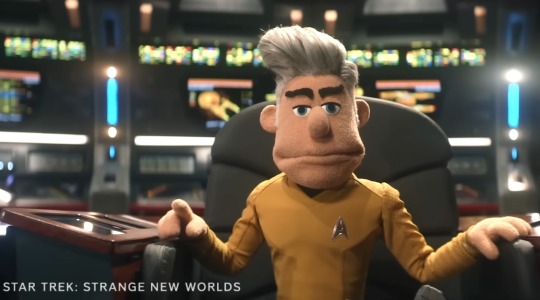
A Muppet Version of Captain Pike Teases Season 4 of ‘Star Trek: Strange New Worlds’ at Comic-Con 2025
82 notes
·
View notes
Text
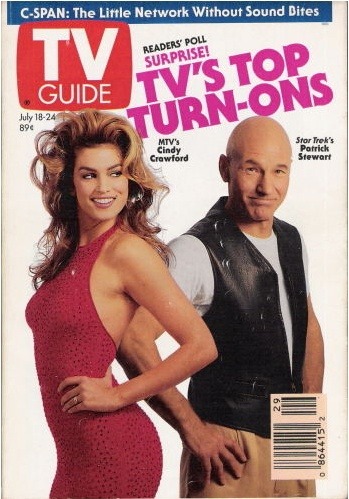
It’s difficult to fully articulate the hold that Patrick Stewart had on audiences when TNG was airing. Between the hundreds of magazine covers, the talk show circuits, and the paparazzi nonsense, the amount of baldness puns editors were compelled to create was astounding.
It was like the media fixated on this man because he had catastrophic levels of charisma and audiences were losing their minds over him (TNG was regularly beating network shows in ratings), yet he was so far removed from the narrow Hollywood standards of beauty that it vexed and haunted these people for years.
Baldness was a joke in Hollywood. 75% of George Costanza's identity revolved around bald jokes. If you were a bald actor, you were cast as a villain or a buffoon, never the hero. And if you were losing your hair, you had to slap a wig on or risk losing your career. Yul Brynner was somewhat of an exception but he was from a much different generation of Hollywood and even Bruce Willis didn't fully shave his head until 1994 (post TNG success incidentally).
In Patrick Stewart's case, there was often an undercurrent of snide putdowns with many interviewers, drawing focus to his baldness over and over and over again with low hanging jokes. It was like you could see their vanity-based paradigms cracking in real time and it was strange to witness. Imagine how bizarre it would be if talk show hosts today could only ask The Rock, Vin Diesel, or Jason Statham about their bald heads.
But karma swooped in to the rescue. In 1992 Stewart was voted TV Guide's "Sexiest Man on Television" with a whopping 54% of votes. He beat out the likes of Luke Perry, John Corbett, A. Martinez, and even Burt Reynolds (with a total of 20 contenders).
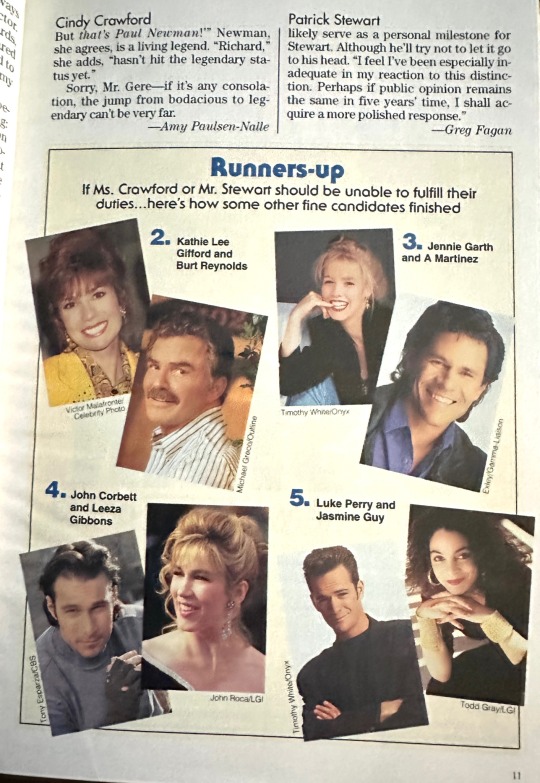
The middle-aged bald guy in the syndicated sci-fi show beat out the hottest of the Hot Guys™️ and it wasn't even remotely close.
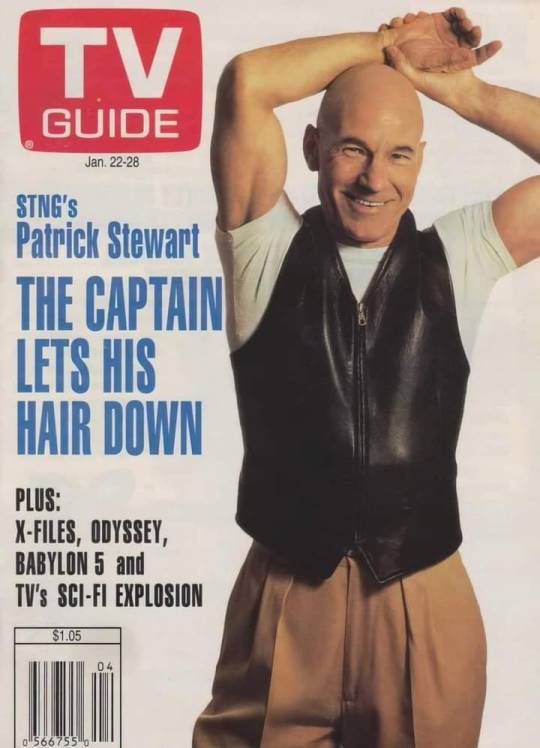
^ Bald joke
So yeah, today he's an old, revered thespian who is occasionally Charles Xavier, but not only did Patrick Stewart pave the way for other bald actors to be considered leading men, he discombobulated Hollywood with his unconventional attractiveness and it was amazing.
5K notes
·
View notes
Text

Untitled
Explore vector1771 (Hangar71.com / Aviationintel.com)'s 9687 photos on Flickr!
21 notes
·
View notes
Text
If we wanted to engage in nuance (lol, lmao) on the "are audiobooks reading" debate, we really do need to bring literacy, and especially blind literacy, into the conversation.
Because, yes, listening to a story and reading a story use mostly the same parts of the brain. Yes, listening to the audiobook counts as "having read" a book. Yes, oral storytelling has a long, glorious tradition and many cultures maintained their histories through oral history or oral + art history, having never developed a true written language, and their oral stories and histories are just as valid and rich as written literature.
We still can't call listening in the absence of reading "literacy."
The term literacy needs to stay restricted to the written word, to the ability to access and engage with written texts, because we need to be able to talk about illiteracy. We need to be able to identify when a society is failing to teach children to read, and if we start saying that listening to stories is literacy, we lose the ability to describe those systemic failures.
Blind folks have been knee-deep in this debate for a long time. Schools struggle to provide resources to teach students Braille and enforcing the teaching of Braille to low-vision and blind children is a constant uphill battle. A school tried to argue that one girl didn't need to learn Braille because she could read 96-point font. Go check what that is. The new prevalence of audiobooks and TTS is a huge threat to Braille literacy because it provides institutions with another excuse to not provide Braille education or Braille texts.
That matters. Braille-literate blind and low-vision people have a 90% employment rate. For those who don't know Braille, it's 30%. Braille literacy is linked to higher academic success in all fields.
Moving outside the world of Braille, literacy of any kind matters. Being able to read text has a massive impact on a person's ability to access information, education, and employment. Being able to talk about the inability to read text matters, because that's how we're able to hold systems accountable.
So, yes, audiobooks should count as reading. But, no, they should not count as literacy.
25K notes
·
View notes
Text
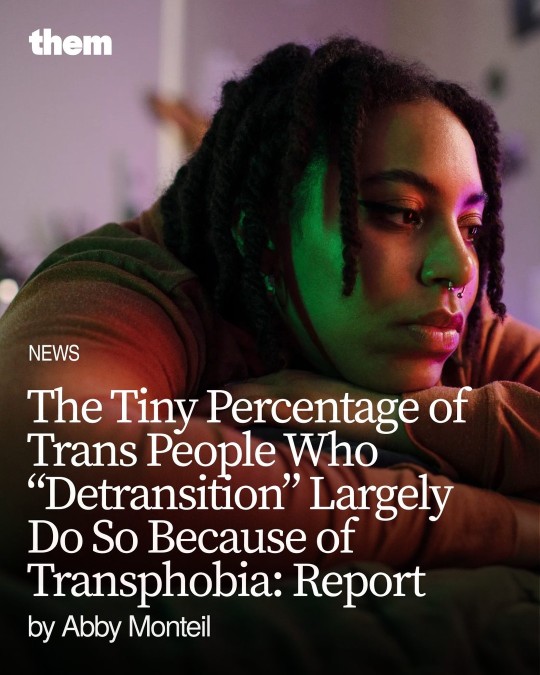
It's funny how every evidence-based study finds this exact same result. Where is the flood of detransitioners we were promised years ago? Where are the whistleblowers of doctors "forcing" teens to transition? That's right, they don't exist.
10K notes
·
View notes










